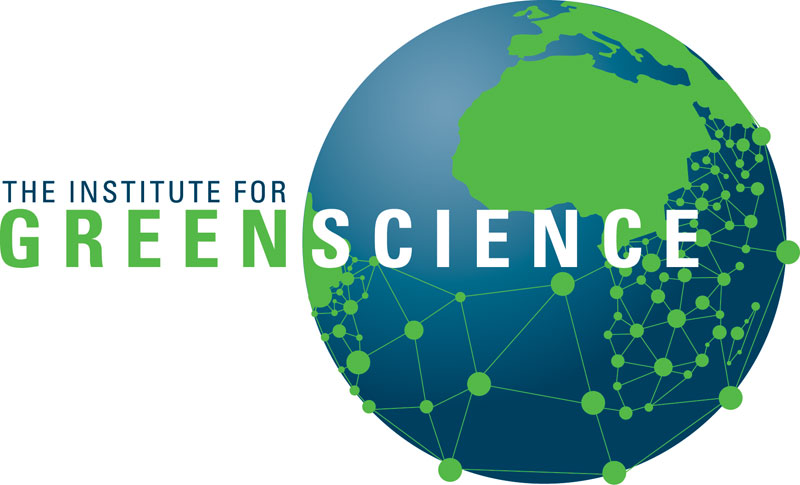About the Institute for Green Science
Vision
We aspire to advance the research, educational and entrepreneurial dimensions of chemical sustainability by broadly developing the fundamental science and applications of green oxidation catalysis in partnership with sustainability-oriented scholars in multiple disciplines.
Mission
To achieve this Vision, we will:
- Build the new field of Sustainable Ultra-Dilute Oxidation Catalysis (SUDOC), made possible by our “NewTAML” catalysts, to advance water purification and the environmental, materials and synthetic spaces.
- Use the NewTAML platform to advance in original ways the fundamental science of oxidation catalyst design, synthesis, mechanisms of action, biosafety, heterogenization, and applications.
- Couple the evolution of NewTAMLs, already with unprecedented technical and cost performances, to the development and quantification of health, environmental, and fairness performances needed as metrics for evaluating the sustainability properties of chemical technologies.
- Develop sustainability-critical solutions for the low dose adverse effects of developmentally disrupting chemicals most commonly originating from disruption of the endocrine hormone system.
- Collaborate with the leading researchers in endocrine disruption science to advance understanding of how to produce new chemical products and processes that are free of endocrine disruption.
- Educate postdocs, graduate and undergraduate students to have consummate technical skills in oxidation catalysis, deep knowledge of endocrine disruption and a strategic view of chemical sustainability challenges.
- Elevate public awareness and understanding through multiple methods of communication concerning the global challenges to sustainability posed by chemicals, while emphasizing solutions.
Values
- maintaining an environment based on a passion for excellence in research and education where all team members can develop the full powers of their gifts to lead science toward sustainability,
- working on the most important sustainability problems we can identify and sharing what we learn,
- fostering an inclusive atmosphere that values equally and supports all faculty, staff and students
- being directed by frontline insight that all life is imperiled by chemical sustainability problems.
